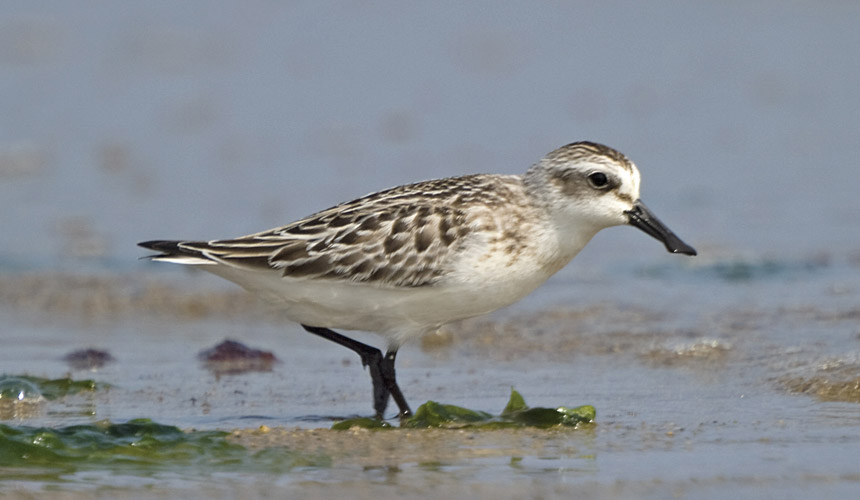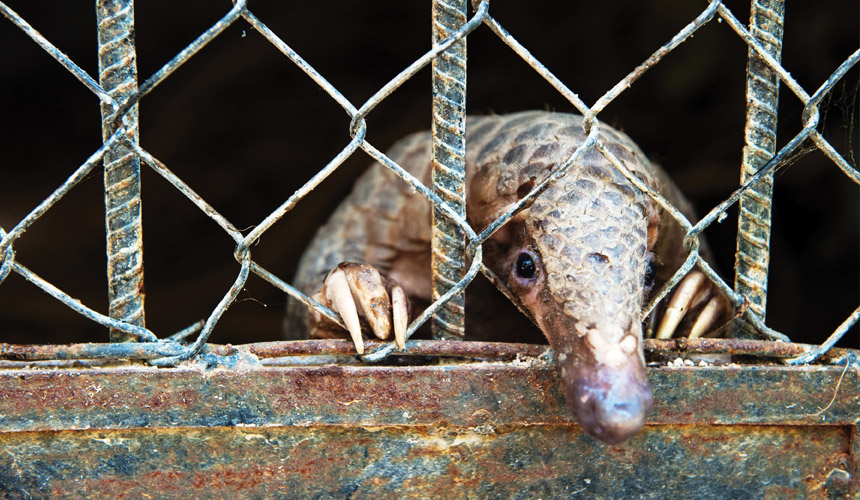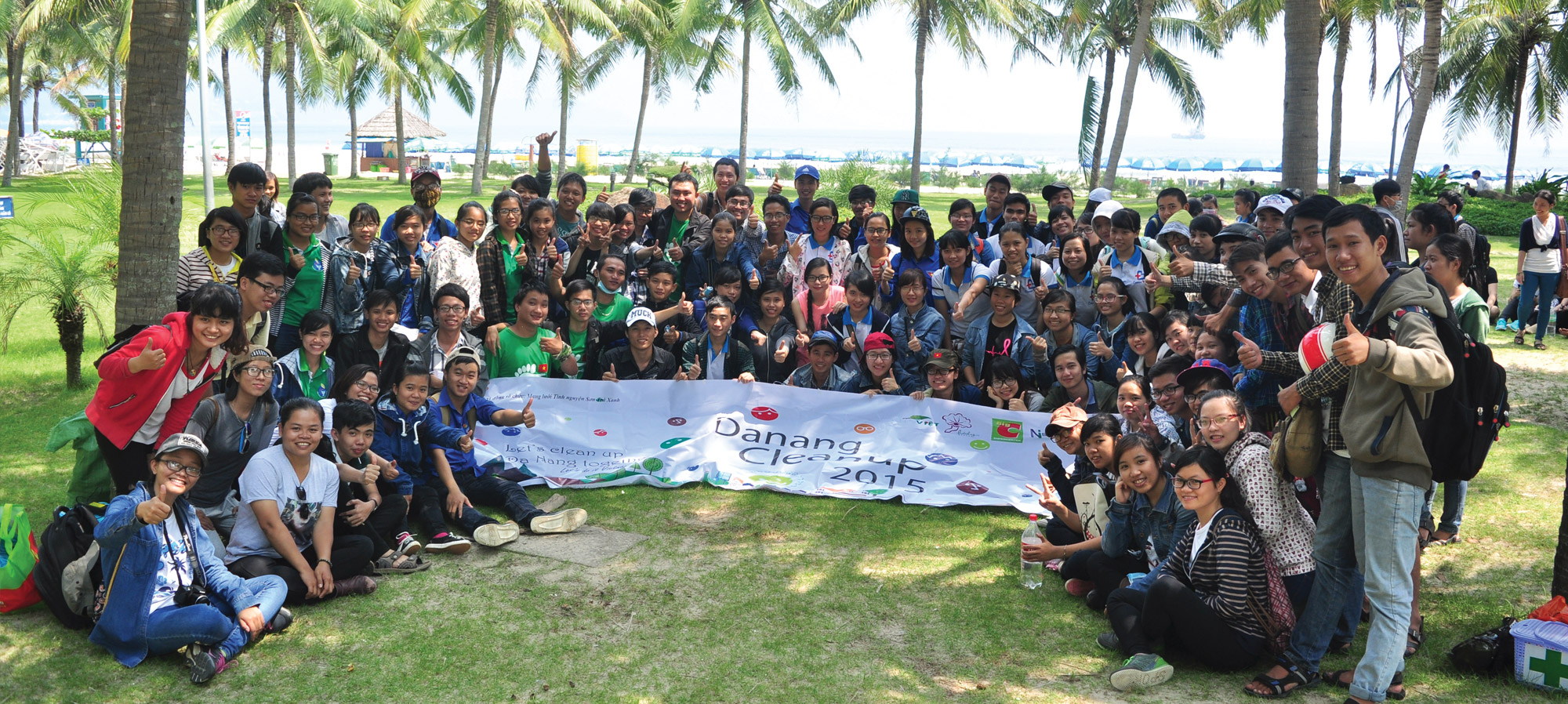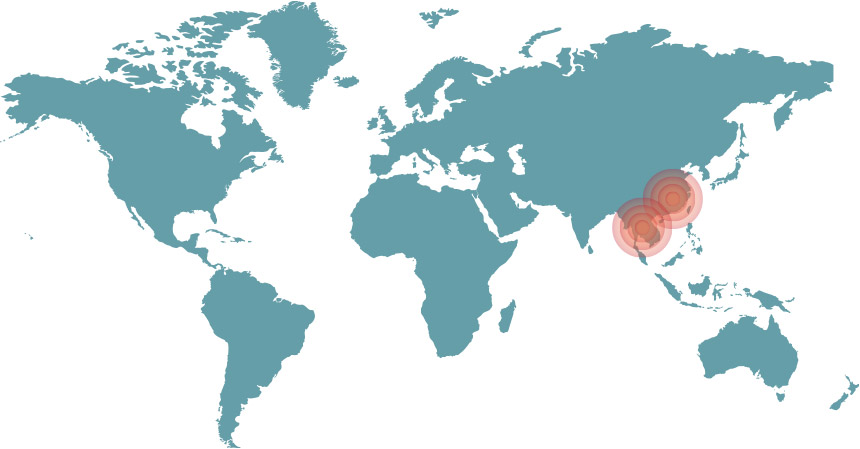Engaging the public and
governments
to fight wildlife trafficking
Wildlife is an important element of the environment. Trading and trafficking wildlife is no different from trading and trafficking heroin and weapons.
Wildlife crime is on the rise across the globe, decimating species while funding criminal and terrorist organizations. To combat the problem in the Indo-Burma biodiversity hotspot, several CEPF grantees are conducting innovative prevention and law enforcement projects.
Guangdong and Guangxi Provinces, China
Along the coast of southern China, the Hong Kong Bird Watching Society (HKBWS) and local conservation groups in Guangdong and Guangxi provinces are monitoring key sites and mapping species that migrate through this section of the East Asian–Australasian Flyway to prevent illegal bird trapping.

Participants found several previously unknown wintering sites for the spoon-billed sandpiper (Calidris pygmaea), a Critically Endangered species with only about 120 to 200 breeding pairs remaining worldwide. They also identified several new sites for the black-faced spoonbill (Platalea minor), a once-common species now classified as Endangered.
To expand the capacity of the local groups, HKBWS held workshops and distributed information about shorebirds and how to map them. Monitoring then began within wetlands where hunting and trapping has been a problem. Monitors were instructed to call the forestry police as soon as they saw anything illegal taking place, resulting in a greater coordination with forest police and border guards. After two years, surveys revealed that illegal use of mist nets had been dramatically reduced at project sites in Guangdong Province, although it was still prevalent at some sites in Guangdong and Guangxi.
Local groups were also given guide training and encouraged to lead free tours at parks in Beihai, Zhanjiang and Zhuhai cities. Promotional events for wildlife protection such as “Bird- Loving Week” were held in cities and villages. Volunteers also met with local government officials to advocate for better enforcement of wildlife protection laws.
Da Nang, Vietnam
In Vietnam, the rapid growth of the urban middle class has increased demand for items that were once only available to the extremely wealthy. Exotic meats; alcohol with preserved cobras, pangolins or bear paws; exotic pets; ornaments and medical cures made from wildlife— all have become more popular in recent years.
Through a CEPF grant, the group GreenViet has been working to change public opinion about this kind of trade, which is in many cases illegal and is almost entirely unsustainable.
“Our project’s goal is to ensure Da Nang City is no longer a site of significant wildlife consumption in Vietnam,” said Le Thi Trang, project coordinator for GreenViet. “With the growth of the economy, the demand for wild animal products has grown substantially in recent years. The situation is now very serious.”
GreenViet partnered with the leading cab company in Da Nang, Mai Linh Taxi, and worked with the Tourism Promotion Center at the city’s main airport to distribute educational materials to tourists about the negative environmental impacts of wildlife products. GreenViet also produced a talk show on illegal wildlife trade, broadcast on Da Nang radio and television around the Tet New Year holiday.
TV talk show hosts and other popular media figures joined the campaign, and shirts, stickers and informational materials with slogans such as: “Wildlife is a National Treasure, Not Your Lunch” were distributed widely. GreenViet also trained government officials from five local natural resource divisions.
Multiple Locations in the Indo-Burma Hotspot

Thailand-based CEPF grantee Freeland and partners Beijing Normal University, Education for Nature–Vietnam, and International Fund for Animal Welfare have been working in several parts of the Indo-Burma Hotspot to increase public awareness of the illegal wildlife trade and reduce demand for wildlife products. For their CEPF-funded project, the group has developed and shared several communication tools and media platforms used by participants in the iTHINK campaign to stop wildlife trafficking. The CEPF grant has built upon iTHINK, which has issued more than 1,200 public service announcements reaching tens of millions of people.
The group’s new online portal ithink-now.org is a one-stop shop for the fight against trafficking in Asian countries. Included are job announcements, scientific studies and news alerts. The site has been translated into several languages and each section is run by local teams in Thailand, Vietnam and China. Freeland is also developing a downloadable toolkit that other NGOs can use to develop awareness campaigns. It will be available in summer 2016.
The group has made a special effort to engage the public through social media such as Facebook and also in China by integrating popular social media platforms Weibo and WeChat.
Freeland’s Deputy Director of Communications Matthew Pritchett says the project has brought the broader conservation community and the people of the Indo-Burma Hotspot closer together. “It has also allowed us to develop conservation tools that can continue to be used and developed for many years after the grant ends,” he said.
Photo Credits
Volunteer gathering in Da Nang. © Bui
Van Tuan/GreenViet
Spoon-billed sandpiper (Calidris pygmaea)
. © Ken/Flickr Creative Commons
Sunda pangolin (Manis javanica). ©
Conor Wall




